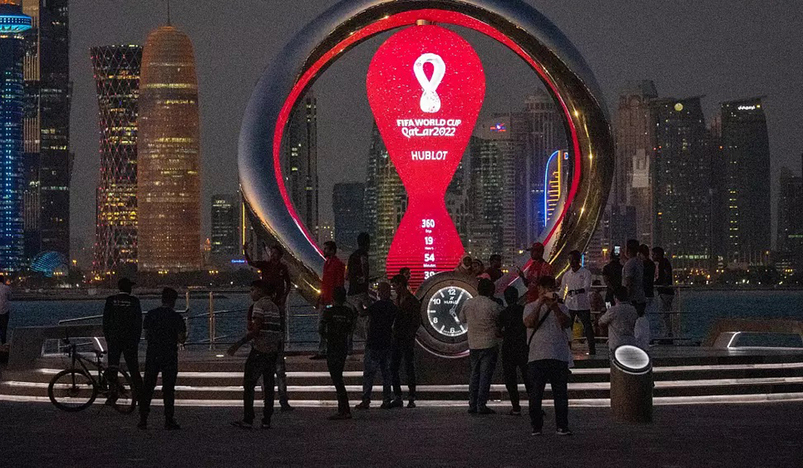
FIFA World Cup Qatar 2022
Speakers at the first session of the First National Forum on Human Rights, which was held today under the title "FIFA World Cup Qatar 2022 and Human Rights: an approach in light of national and international interest in sports", affirmed that it was not the World Cup tournament that gave Qatar its strength, instead it was the State of Qatars soft power that qualified it to host the FIFA World Cup 2022, because such major events do not go to weak countries but to strong ones.
The speakers underlined that Qatars interest in sports preceded the right to host the World Cup, and that this goal was achieved as a result of a strategic choice that the State of Qatar adopted in 2008. Furthermore, the speakers indicated that Qatar is one of the most capable countries internationally to create soft power in the fields of politics, economy, sports and media amongst others, compared to its geographical area.
Todays session featured a panel of speakers that include the Director of the Legal Affairs Department of the National Human Rights Committee Nasser Marzouk Sultan Al Marri, Advisor to the Office of the Minister of Sports and Youth Dr. Mohammed Ismail Al Ansari, and the Human Rights Officer at the UN Human Rights Training and Documentation Centre for South-West Asia and the Arab Region Ishraq bin Al Zain.
The panel speakers defined soft power as the ability to attract and entice others towards the values, ideas and inclinations the influencer harbors through their active presence. As such, the State of Qatar has managed to impress many world populations, and is now setting an example in preparing for the FIFA World Cup Qatar 2022, and in so doing, involving various countries in the organization, securing and preparations of this major international event. As a result, the State of Qatar is developing these countries capabilities through including them in its own preparations. In fact, unlike other countries, Qatar did not politicize sports, rather it was an investment in development for Qatar. Moreover, the World Cup is not a final destination for the State of Qatar, rather it is a very important stop on the path of development adopted by the state, and functions also as an opportunity for its people to emphasize their ambition to build a peaceful, cooperative and open human society.
Speakers Al Marri, Al Ansari, and Bin Al Zain discussed the interest international law has in sports, its role in promoting awareness and teaching people the values of respect, diversity and tolerance, and to the ability of major sporting events-the most important of which is the World Cup soccer tournament-and their contribution to upholding the values of peace, cooperation and coexistence among the people of the world. Not to mention how sporting events enhance the social integration of women, children and people with disabilities. To this end, the speakers stressed that the NHRC will be monitoring any potential human rights abuses of the world cups audience, and stands ready to support the victims, including before the concerned authorities if necessary. NHRC also works to devote the values of social cohesion and acceptance of otherness, without prejudice to societys values and culture.
The speakers noted that the National Human Rights Committee's interest and efforts will not stop by the end of the FIFA World Cup Qatar 2022 period, given that the right to sports and the practice of sports is a national culture: exemplified in the countrys annual celebration of the Qatar National Sports Day.
Furthermore, the speakers noted that the committee launched many initiatives related to deepening the understanding of the legal frameworks regulating sports activities. It also integrated the right to sports within the civil and military colleges' human rights curricula, as well as the concept of the right to sport in public policies dealing with human development and national youth and health strategies. Moreover, the committee put an effort in empowering societys most vulnerable groups to enjoy the right to sport, as well as encouraging the business community to facilitate access to sports services: as part of corporate social responsibility.
The speakers reviewed treaties, general agreements, international charters and UN resolutions that affirm that sports is an implicit and explicit human right. The speakers also stressed the importance of these international legal texts in enhancing universal inclusiveness, and upholding supreme value, especially since sports are an important tool for promoting dialogue, intellectual diversity, education, health, development and peace.
(QNA)
.jpg)
Qatar Secures Place Among the World's Top 10 Wealthiest Nations
.jpg)
Hamad International Airport Witnesses Record Increase in Passenger Traffic

Saudi Arabia: Any visa holder can now perform Umrah

What are Qatar's Labour Laws on Annual Leave?
Leave a comment